UPSC Daily Current Affairs- 8th September 2023 | Current Affairs & Hindu Analysis: Daily, Weekly & Monthly PDF Download
GS-II
African Union’s Entry into G-20: A Global Diplomatic Shift
Subject: International Relations
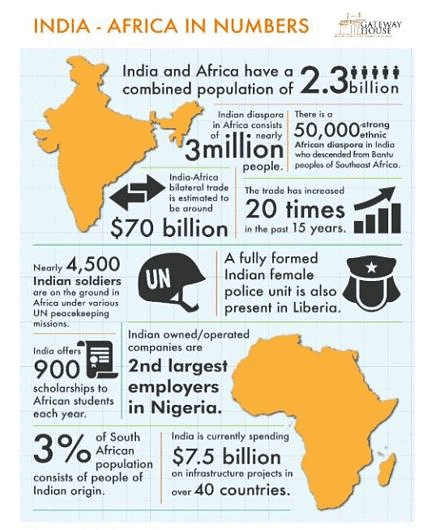
Why in News?
Negotiators confirm the African Union (AU) will join the G-20, mirroring the European Union (EU) as a regional body within the group.
- India views this development as a significant achievement for the Indian Presidency in advancing the Global South’s interests in the G-20.
Landmark Diplomatic Shift in G20
- The AU’s potential entry into the G-20 signals a significant diplomatic shift, expanding the group’s representation and influence.
- China and Russia, despite differences on other issues, back the AU’s membership, highlighting the broader global dynamics at play.
What is the African Union?
- The African Union (AU) is an intergovernmental organization in Africa.
- It was established in 2002 as a successor to the Organization of African Unity (OAU).
- It consists of 55 member states in Africa.
- Its primary objectives include promoting unity, cooperation, and development across the continent.
- It aims to address social, political, and economic challenges faced by African nations.
- It promotes peace, security, and stability in Africa.
History of India-Africa Relations
(1) Ancient Period:
- Ancient trade links: Indian merchants traded with the African coast for valuable goods like palm oil, gold, spices, and ivory.
- Maritime trade network: Trade routes expanded from Egypt to northern Somalia, Punt, Sudan, and Axum, enhancing economic and cultural ties.
(2) Medieval Era:
- Indian presence in East Africa: Gujarati and Saurashtrian merchants played a significant role in Africa’s east coast trade, using Indian systems of weights, measures, and currency.
- Development of internal links: Indian trade contributed to the development of internal connections within Africa, even before European involvement.
(3) Colonial Period:
- Impact of European colonialism: Indian presence in Africa changed under European colonial powers.
- Anti-apartheid struggle: Mahatma Gandhi’s involvement in the anti-apartheid movement in South Africa laid the foundation for India’s solidarity with Africa.
- Advocacy against apartheid: India actively raised the issue of apartheid in international forums like the UN, NAM, and Commonwealth.
(4) Post-Colonial Period:
- Continuation of Afro-Asian solidarity: India’s approach to Africa has been guided by the vision of commerce in ideas and services rather than raw materials.
- Phases of engagement: From Nehru’s focus on Afro-Asian solidarity to phases of neglect and re-engagement, India’s Africa policy evolved.
Present Status of Ties
- Institutionalization of relations: The India-Africa Forum Summit serves as the framework for India-Africa relations under South-South Cooperation.
- Expanded diplomatic presence: India announced the opening of embassies in 18 African countries, strengthening diplomatic ties.
- Economic engagement: Bilateral trade between India and Africa has grown significantly, with India becoming Africa’s third-largest trade partner.
- Investment and development cooperation: Indian investments in Africa have increased, with the country being the seventh-largest investor in the region.
- Lines of Credit (LoC): India’s concessional LoCs support development projects in Africa, with 182 projects sanctioned, amounting to US$10.5 billion.
- Bilateral cooperation: Collaboration includes areas such as solar energy, climate change, information technology, maritime security, counter-terrorism, and military training.
- Soft power projection: India’s ITEC program offers scholarships to African students, and the Indian diaspora contributes to cultural exchange.
Significance of Africa
(1) Geostrategic Importance:
- Proximity to India: Africa’s Horn region is critical for India’s security due to emerging threats like radicalism, piracy, and organized crime.
(2) Economic Significance:
- Diversifying energy sources: Africa can help India diversify its energy sources, aligning with the Integrated Energy Policy.
- Rich resources: Africa possesses valuable minerals, metals, and abundant agricultural land, addressing India’s need for food security and resources.
- Market and investment opportunities: Africa provides a space for Indian investments and trade expansion, fostering economic cooperation.
(3) Geopolitical Considerations:
- Support for UNSC seat: Africa’s support is crucial for India’s aspiration to gain a permanent seat on the UN Security Council.
- Projection of soft and hard power: India showcases its soft and hard power in Africa, contributing to its global influence.
- Peacekeeping and capacity building: India actively participates in UN peacekeeping operations and supports capacity building in African countries, strengthening bilateral ties.
Various Challenges
- Declining trade and investment: Bilateral trade and Indian investments in Africa have witnessed fluctuations, demanding efforts to enhance economic ties.
- Short-term focus: LoCs have primarily funded small-scale projects, lacking a broader development perspective.
- Competition from other powers: India faces competition from other countries like China, Brazil, and Russia, engaging Africa in various sectors.
- Lack of synchronization: Development instruments like LoCs, grants, and capacity-building initiatives operate independently, lacking coordination.
- Instances of racial attacks: Incidents of violence against African students in India pose challenges to people-to-people connections.
Chinese Challenge in Africa
- China’s extensive investments in Africa have significantly impacted the region across infrastructure, finance, natural resources, and maritime interests.
- Access to resources, untapped markets, and support for the “One China Policy” drive China’s engagement.
Strategies for India
- Develop a focused Africa strategy: India should formulate a comprehensive strategy for the next decade, identifying key areas of cooperation.
- Focus on capacity building: Investing in human capital is crucial for sustainable development in Africa.
- Collaborate with civil society organizations and diaspora: Indian organizations and the diaspora can play a vital role in implementing development projects at lower costs.
- Ensure timely project completion: Efforts should be made to expedite LoC projects, learning from countries with better implementation records.
Steps taken so far
- Indian Technical and Economic Cooperation (ITEC) program: India’s ITEC program provides technical assistance to African countries, with around 50% of ITEC slots reserved for Africa.
- Asia-Africa Growth Corridor: The AAGC, a cooperation agreement between India, Japan, and African countries, aims for inclusive development.
- Pan African e-Network: The PAeN facilitates tele-education and telemedicine in Africa, contributing to technological advancement.
- Maritime cooperation: India’s collaboration with African nations in the maritime domain, exemplified by joint exercises, promotes regional security.
- Peacekeeping operations: India actively participates in UN peacekeeping operations in Africa, supporting African counter-terrorism efforts and capacity building.
- Duty-free tariff preferential scheme: India’s scheme benefits African nations, and the India-Africa Forum Summit plays a vital role in strengthening ties.
- India Africa Defence Ministers conclave: Initiatives like this enhance defence cooperation and bilateral relations.
Way Forward
- Enhance mutual engagement: Organize the pending fourth India-Africa Forum Summit to further strengthen the relationship.
- Allocate fresh financial resources: Allocate new resources for grants and concessional loans, prioritizing economic relations.
- Focus on emerging sectors: Develop collaborations in health, space, and digital technologies to give a 21st-century dimension to the partnership.
- Continued support in peacekeeping: Sustain India’s contributions to peacekeeping, counter-terrorism, and capacity building in Africa.
- Improve experiences of Africans in India: Ensure the safety and well-being of Africans studying or working in India, promoting people-to-people connections.
- Promote development-friendly private investments: Align development cooperation with commercial interests to support mutually beneficial projects.
- Strengthen international cooperation: Collaborate with international allies to address the China challenge in Africa, emphasizing partnership-based approaches.
Source: The Hindu
State of Educational Empowerment for Religious Minorities in India
Subject: Government Policies
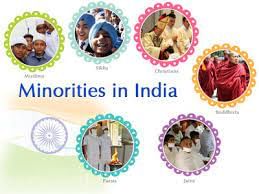
Why in News?
Recently, the status of educational empowerment schemes for religious minorities in India has come under scrutiny.
- These programs were initially designed to bridge the educational gap and promote inclusivity among different religious communities in the country.
- However, there have been significant changes and controversies surrounding these schemes, leading to concerns about their impact on minority communities.
What is the Status of Educational Empowerment Schemes for Religious Minorities in India?
- About:
- Religious minorities in India, including Muslims, Christians, Sikhs, Buddhists, Jains, and Zoroastrians, constitute a substantial portion of the population, making up approximately 20%.
- The Sachar Committee's report in 2006 highlighted these disparities, placing Muslims behind several other groups in development indicators.
- To address the disparities, the government established the Ministry of Minority Affairs in 2006, focusing on educational empowerment, economic development, infrastructure improvement, and special needs of religious minorities.
- Scholarships for minority students became a pivotal component of this initiative, aimed at providing financial assistance and access to quality education.
- Curent Status of Welfare Schemes for Educational Empowerment of Minorities:
- Pre-Matric Scholarship Scheme: Initially awarded to minority students from class 1 to 10. Later, discontinued for classes 1 to 8, only covering class 9 and 10 in its revised form.
- While discontinuing the scholarship, the government said the Right to Education Act (RTE Act) covered compulsory education up to class 8 for all students.
- Post-Matric Scholarship Scheme: For students of class 11 and above (till Ph.D.). Funds increased from Rs 515 crore to Rs 1,065 crore in 2023-24.
- Merit-cum-Means based Scholarship Scheme: Targeted professional and technical courses at undergraduate and postgraduate levels. However, it faced a significant reduction in funds in 2023-24.
- Maulana Azad National Fellowship (MANF): Provided financial assistance to research scholars pursuing M.Phil and Ph.D. However, it was discontinued in 2022.
- Padho Pardesh: Provided an interest subsidy on education loans for overseas studies. However, it was discontinued from 2022-23.
- Begum Hazrat Mahal National Scholarship: Scholarship for meritorious girls for higher secondary education. However, no funds have been allocated in 2023-24.
- Naya Savera: Provided free coaching to minority students for competitive exams. However, it was discontinued in 2023-24.
- Nai Udaan: Supported minority students preparing for various examinations. However, no funds have been allocated in 2023-24.
- Scheme for Providing Education to Madrasas and Minorities (SPEMM): Aimed at modernizing madrasa education. Allocation reduced in 2023-24.
- Pre-Matric Scholarship Scheme: Initially awarded to minority students from class 1 to 10. Later, discontinued for classes 1 to 8, only covering class 9 and 10 in its revised form.
What are the Constitutional Provisions Related to Religious Minorities?
- Article 25: It guarantees freedom of conscience and free profession, practice and propagation of religion to all persons.
- Article 26: It grants every religious denomination or section thereof the right to establish and maintain institutions for religious and charitable purposes, and to manage its own affairs in matters of religion.
- Article 29: It provides that any section of the citizens residing in any part of India having a distinct language, script or culture of its own, shall have the right to conserve the same.
- Article 30: Under the article, all minorities shall have the right to establish and administer educational institutions of their choice.
What are the Other Major Challenges Related to Religious Minorities?
- Communal Violence: One significant challenge is the occurrence of communal violence, where conflicts erupt along religious lines.
- These incidents result in loss of life, property damage, and displacement of minority communities.
- This challenge is rooted in factors like political manipulation, economic disparities, and historical tensions that need careful examination.
- Intersectional Discrimination: Beyond religious discrimination, religious minorities, especially women, may face intersectional discrimination.
- Social Isolation: Religious ghettoization, where minority communities cluster in specific neighborhoods, impacts their social integration and economic opportunities.
- Cyberbullying and Online Harassment: The rise of cyberbullying and online harassment to target religious minority individuals or groups,is impacting their online safety and mental well-being.
Way Forward
- Leverage Public-Private Partnerships: Foster collaborations between the government, private sector, and non-profit organizations to supplement funding and resources for minority education initiatives.
- This can help offset budget cuts and ensure sustained support for these schemes.
- Digital Literacy Programs: Implement digital literacy programs tailored for religious minority communities to ensure they are not left behind in the digital age. This can enhance access to information and opportunities.
- Local Level Initiatives: Empower local communities to take the lead in promoting interfaith dialogue and cooperation. Grassroots initiatives can have a significant impact in building trust and social cohesion.
- There is a need to establish community-based conflict resolution centers that specialize in addressing interfaith and inter-community disputes.
- These centers can provide mediation and counseling services.
- Traditional Knowledge Preservation: Recognize and preserve traditional knowledge systems and practices of religious minority communities. This can be done through digital documentation and funding for cultural preservation projects.
- Social Impact Assessment and Investment: There is a need to conduct time bound social impact assessment and encourage social impact investment in religious minority-owned businesses and startups. This can help create economic independence and reduce disparities.
Source: Indian Express
Competition Commission of India (CCI)
Subject: Polity
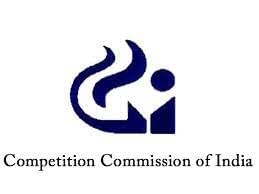
Why in News?
The Competition Commission of India has released draft norms for regulation of combinations that would help bring high-value mergers and acquisitions with substantial India operations, particularly those in the tech sector, within the antitrust regulator’s ambit.
About Competition Commission of India (CCI):
- CCI, a statutory body of the Government of India, was established in March 2009 under the Competition Act, 2002.
- The goal of CCI is to create and sustain fair competition in the economy that will provide a ‘level playing field’ to the producers and make the markets work for the welfare of consumers.
- The priority of the Commission is to eliminate practices having adverse effects on competition, promote and sustain competition, protect the interests of consumers, and ensure freedom of trade in the markets of India.
- Mandate: To implement provisions of The Competition Act, 2002 which –
- prohibits anti-competitive agreements and abuse of dominant position by enterprises;
- regulates mergers and acquisitions (M&A) which can have an adverse effect on competition within India. Thus, deals beyond a certain threshold are required to get clearance from CCI.
- It oversees the operations of big enterprises to ensure they are not abusing their ‘dominant position’ or power by controlling supply, setting up high purchase prices, or adopting practices that are unethical and may harm budding enterprises.
- Composition:
- It has the composition of a quasi-judicial body, with one chairperson and six additional members.
- All members of the CCI are appointed by the Central Government.
- Headquarters: New Delhi.
Source: Business Today
GS-III
What are Dark Patterns?
Subject: Science and Technology
Why in News?
The Centre has sought public comments on the draft guidelines for prevention and regulation of “dark patterns,” on the Internet, particularly in e-commerce platforms. The guidelines include ways to prevent and regulate false urgency, basket sneaking, confirm shaming, forced action, subscription trap and more such “dark patterns”.
About Dark Patterns:
- Dark patterns are deceptive and manipulative user interface (UI) design techniques employed by websites, apps, and other digital platforms to trick or manipulate users into taking actions they may not intend to take or to make decisions that are not in their best interest.
- The term “dark patterns” was coined in 2010 by Harry Brignull, a user experience specialist.
- These patterns are often used to encourage users to sign up for services, make purchases, or share personal information, among other things.
- Dark patterns exploit cognitive biases and psychological principles to influence user behavior.
- They can range from subtle and mildly misleading to overtly aggressive tactics.
- There are 12 kinds of dark patterns: Friend spam, forced continuity, disguised ads, confirm shaming, bait and switch, hidden costs, roach motel, privacy zuckering, misdirection, price comparison prevention, trick questions, and sneak into basket.
- For Example: 'Confirm shaming' means using a phrase, video, audio or any other means to create a sense of fear, shame, ridicule or guilt in the mind of the user so as to nudge the user to act in a certain way.
Source: The Hindu
$1.8 billion recovered under Fugitive Economic Offenders Act
Subject: Economics
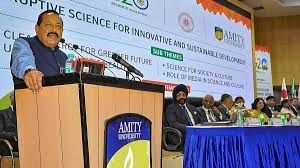
Why in News?
Assets worth over $12 billion have been attached since 2014 under the Prevention of Money Laundering Act (PMLA).
- Additionally, assets exceeding $1.8 billion have been recovered in the past four years under the Fugitive Economic Offenders Act (FEOA), 2018.
About the Fugitive Economic Offenders Act, 2018
- The FEOA is a significant legal instrument designed to address the issue of economic offenders who flee the country to evade criminal prosecution or refuse to return to face charges.
- This act empowers authorities to confiscate the ill-gotten gains of these individuals and bar them from filing or defending civil claims, among other provisions.
Key Provisions of the Fugitive Economic Offenders Act:
(1) Definition of Fugitive Economic Offender:
- A “fugitive economic offender” is an individual against whom an arrest warrant has been issued for committing an offense listed in the Act, and the value of the offense is at least Rs. 100 crore.
- Offenses listed in the act include counterfeiting government stamps or currency, cheque dishonor, money laundering, and transactions defrauding creditors.
(2) Declaration of a FEO:
- After considering an application, a special court (designated under the Prevention of Money Laundering Act, 2002) may declare an individual as a fugitive economic offender.
- The court may confiscate properties that are proceeds of crime, benami properties, or any other property, whether in India or abroad.
- Upon confiscation, all rights and titles of the property vest in the central government, free from encumbrances.
- The central government may appoint an administrator to manage and dispose of these properties.
(3) Bar on Filing or Defending Civil Claims:
- The Act allows any civil court or tribunal to prohibit a declared fugitive economic offender from filing or defending any civil claim.
- Furthermore, any company or limited liability partnership where such an individual is a majority shareholder, promoter, or a key managerial person may also be barred from filing or defending civil claims.
- Authorities may provisionally attach properties of an accused while the application is pending before the Special Court.
(4) Powers:
- The authorities under the Prevention of Money Laundering Act, 2002, will exercise powers conferred upon them by the Fugitive Economic Offenders Act.
- These powers are akin to those of a civil court and include the search of persons in possession of records or proceeds of crime, the search of premises upon belief that a person is a fugitive economic offender, and the seizure of documents.
Other laws related to FEOs
- The existing laws under which such fugitive economic offenders are tried include:
- Recovery of Debts Due to Banks and Financial Institutions Act (RDDBFI),
- Securitisation and Reconstruction of Financial Assets and Enforcement of Security Interest Act, 2002, (SARFESI) and
- Insolvency and Bankruptcy Code (IBC).
Source: The Hindu
Self-Regulatory Organizations (SROs) in the Fintech Sector
Subject: Economics
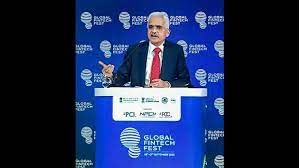
Why in News?
In the rapidly evolving landscape of the fintech sector, the Reserve Bank of India (RBI) Governor has called upon fintech entities to establish Self-Regulatory Organizations (SROs).
What is an SRO (Self-Regulatory Organization)?
- An SRO is a non-governmental entity entrusted with the task of formulating and enforcing rules and standards governing the behaviour of participants within a specific industry.
- The primary objective of an SRO is to safeguard consumer interests, uphold ethical practices, promote equality, and nurture professionalism within the industry.
- Typically, SROs collaborate with all industry stakeholders to establish and administer regulations.
Key Characteristics of an SRO
- Impartial Governance: SROs maintain impartial mechanisms to oversee self-regulatory processes, ensuring that industry members operate within a disciplined framework and accept penalties when necessary.
- Beyond Industry Interests: SROs extend their concerns beyond the narrow interests of the industry itself. They aim to protect not only industry players but also workers, customers, and other participants in the ecosystem.
- Supplement to Existing Regulations: While SROs formulate regulations, standards, and mechanisms for dispute resolution and enforcement, they do not replace applicable laws or government regulations. Instead, they complement existing legal frameworks.
Functions of an SRO
- Communication Channel: SROs serve as intermediaries between their members and regulatory authorities like the RBI, facilitating two-way communication.
- Establishment of Standards: SROs work to establish minimum benchmarks and industry standards, fostering professionalism and healthy market behavior among their members.
- Training and Awareness: SROs provide training to their members’ staff and conduct awareness programs to promote industry best practices.
- Grievance Redressal: They establish uniform grievance redressal and dispute management frameworks to resolve issues within the industry.
Why is an SRO Necessary?
- As the fintech sector continues to evolve, SROs can play a pivotal role in ensuring the industry’s responsible growth and maintaining ethical standards.
- They address critical issues such as market integrity, conduct, data privacy, cybersecurity, and risk management.
- SROs contribute to building trust among consumers, investors, and regulators.
RBI’s Expectations from Fintech Players
- The Reserve Bank of India expects fintech companies to:
- Evolve industry best practices and privacy/data protection norms in compliance with local laws.
- Set standards to prevent mis-selling and promote ethical business practices.
- Ensure transparency in pricing.
- RBI Governor has encouraged fintechs to establish an SRO voluntarily.
Benefits of an SRO
- Industry Expertise: SROs possess deep industry knowledge, making them valuable contributors to industry discussions and educational initiatives.
- Standardized Conduct: SROs promote a standardized code of conduct that encourages ethical business practices, ultimately boosting confidence in the industry.
- Watchdog Role: SROs act as watchdogs, preventing unprofessional and unethical practices within the industry.
Conclusion
- In the dynamic fintech sector, Self-Regulatory Organizations (SROs) emerge as indispensable entities.
- Their role in shaping industry behaviour, promoting ethical conduct, and safeguarding consumer interests cannot be overstated.
Source: The Hindu
|
51 videos|5377 docs|1138 tests
|
















